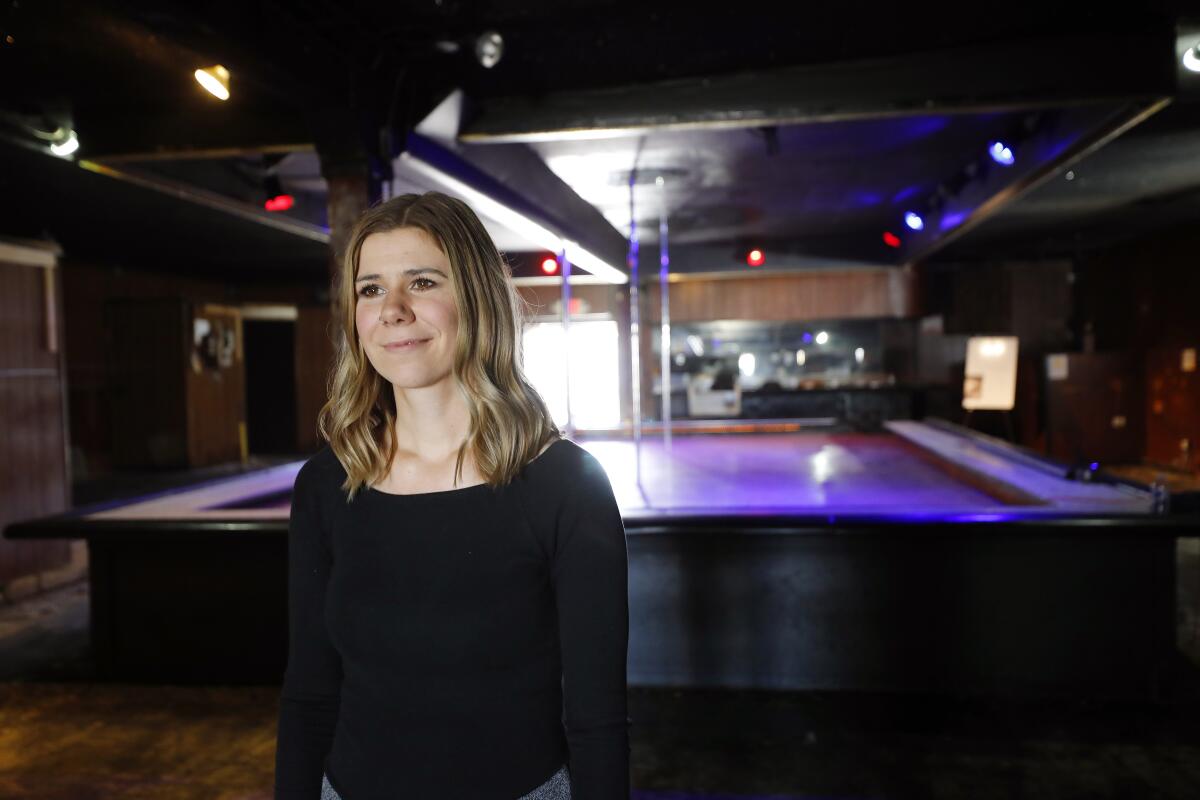Former San Diego strip club to be replaced with center for sex trafficking victims

SAN DIEGO — With the swing of a sledgehammer, demolition began this week on a former San Diego strip club that, in a form of poetic justice, will soon be replaced by a resource center for sex trafficking victims.
In June 2018, San Diego’s the Rock Church and several investors purchased the 54-year-old Body Shop nightclub in San Diego’s Midway District with a plan to allow the business’s adult entertainment license to lapse and then sell the property. But during the pandemic, a new plan was hatched to help repurpose the 4,000-square-foot building into a place that, with the help of grants, will be as far away from its original purpose as possible.
The Freedom Center, a new San Diego nonprofit, will renovate the structure and turn it into a place where sex-trafficking victims can come to get information on shelters, counseling, education and job opportunities that can help them leave the sex trade behind, said
Kristen Zimmermann, the nonprofit’s executive director.
“We hope to serve hundreds of women here,” Zimmermann said during the demolition’s ceremonial kickoff event. “Because of something called trauma bonding, it’s often very hard for these women to stay out of this industry. Our vision is to remove the barriers so women don’t feel that returning to that work is their only option.”
Based on a 2016 U.S. Justice Department study, San Diego is the 13th-largest city in the country for sex trafficking. An estimated 8,000 to 11,000 people are trafficked each year in San Diego, generating roughly $810 million in annual revenues. Nearly 80% of these victims are women, from every corner of the county, as well as all ages and socioeconomic brackets.
San Diego County Dist. Atty. Summer Stephan has said a major reason San Diego has such a large trafficking industry is the high volume of tourists, conventioneers and military members who use prostitution and escort services when they visit the region.
Lisa Penberthy, executive director of operations for Rock Church, said it feels good to see the building make a “180-degree” turnaround: “We’re excited to see the lives that will be changed because of the new purpose of this facility.”
This week marked the kickoff of a campaign to raise $1.5 million for interior improvements on the Freedom Center building.
The first $50,000 was contributed by the faith-centered real estate company Thank You Heroes Home Rebate Program. The 5-year-old company offers military, law enforcement, teachers, clergy and healthcare workers cash rebates of up to 30% of the cost of buying and selling a home, as well as buyer education, home warranty and guaranteed buy-back programs.
Thank You Heroes Chief Executive Aaron Moore, 43, of Pacific Beach, wielded the first sledgehammer on one of the strip club’s private dance booths. Drenched with sweat after tearing out one wall in 3-minute sessions, he said afterward that he felt awesome destroying the club’s history.
“I’m a dad and I’ve got a daughter myself, so I support any efforts to help these women turn their lives around,” he said. “Last year we had a good year in real estate and we want to support the call to action to donate. Whether it’s $20 or $20,000, we hope people will step up to help this terrible problem.”
Zimmermann said Freedom Center will initially focus its efforts on clients’ immediate needs, offering 24-hour daily staffing to direct visitors to resources such as food and clothing, mental health care, help with medical and legal issues, and vocational training.
Eventually, Freedom Center will create its own network of secure, offsite housing for clients. She said that Thank You Heroes is just one of several organizations that have helped
get Freedom Center started. Details on the new project and fundraising can be found at sandiegofreedomcenter.com.
Kragen writes for the San Diego Union-Tribune.
More to Read
Updates
2:49 p.m. Aug. 12, 2021: This story has been updated to reflect more recent information on the number of sex trafficking victims in San Diego.
Sign up for Essential California
The most important California stories and recommendations in your inbox every morning.
You may occasionally receive promotional content from the Los Angeles Times.











